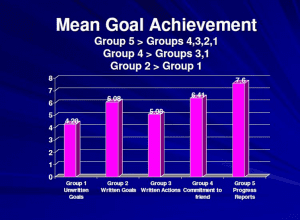Goal setting and planning is advocated by many, and as with all management advice there are always people who say that focusing on principles is better than goal settings. Here are 7 principles when setting goals.
- Write your goals down.
- Set short term milestones
- Be Specific
- Measure Actions as well as Progress
- Start with just one Goal
- Schedule in time for your goal
- Set Goals you actually want to achieve. (Do not set goals because you think you “should” or because they sound “good”)
Need a template?
This document has been useful to many people. Don’t try to be too complicated. What is top of mind (what first comes to you) is probably the most important thing so don’t over complicate it.
You may wish to start at the personal goals page, or just keep it simple and fill in page 1.
Why Do People Not Set Goals
- They don’t realize about the importance of goals. (If the people with whom you spend the most time — family, friends, colleagues, and so forth — are not clear and committed to goals, there is a chance that you will not be, either.)
- They don’t know how to set goals. (Some set goals that are too general. These are, in reality, fantasies common to everyone. Goals, on the other hand, are clear, written, specific, and measurable.)
- They fear failure. (Failure hurts, but it is often necessary to experience failure in order to achieve the greatest success. Do not unconsciously sabotage yourself by not setting any goals in which you might fail.)
- They fear rejection. (People are often afraid that if they are unsuccessful at achieving a goal, others will be critical of them. This is remedied by keeping your goals to yourself at the outset; let others see your results and achievements once you’ve accomplished your goals.)
Benefits of Planning / Goals.
(This is probably an urban myth!)
1953 Yale or 1979 Harvard MBA program. Students were asked, “Have you set clear, written goals for your future and made plans to accomplish them?”
- Only 3% of the graduates had written goals and plans;
- 13% had goals, but they were not in writing;
- 84 % had no specific goals at all.
10 Years Later
- The 13 % goal group – earning, on average, twice as much as the 84 % (no goals group).
- 3% group with clear, written goals? Earning, on average, ten times as much as the other 97 % put together.
Real Study
Dominican University (not Harvard / Yale). 267 participants, 149 completed (113 female, 437 male), 4 weeks, with 5 groups
- Think only
- write down
- write + actions
- Write + actions + friend
- Write + action + friend + progress reports to the friend
These were the results.









